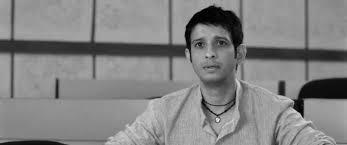Corona related uncertainty and lock-down is bringing out real nature of most of investors. Our behavior in this crisis situation helps us understand our real nature. This helps us plan future investment appropriately. Today I am sharing my experiences with three people with whom I work closely. You can ask yourself who is behaving like you would and that will give you some idea about your real risk profile.
Have you heard there are three types of investor personalities. These are aggressive, balanced and conservative profiles. I had learned them as part of financial planning training and followed when I had to plan for portfolio for any person. Aggressive ones are willing to take lot of risks where as conservative ones are exactly opposite. Balanced profile means bit of both. I follow moneycontrol risk assessment tool for basic assessment before making their plan.
I thought this method was good enough. But it is current corona virus crisis which practically showed me how people around us actually react. This has helped me understand my clients better. All investors get similar data, news and so so called expert advises but still each of us behave very differently to same situation.
Purpose of this article is to get you familiar with these personalities so you know why it is important to know your personality before investing in market linked instruments. So don’t try to judge who is right or wrong here. Out of three, who makes most of money, only time will tell but none of them would change their decisions at this stage. This is because even if you would like to keep your emotions or personality out of investments, when stakes will be high, it will play its part. And it plays a major role in decisions. Role is far higher than our knowledge of finance or intelligence or logic. Logic would made most of us act in similar manner. But in any market, there are sellers who think asset is over valued and then there are buyers who think its available cheap.
Experts will advice you to keep emotions out of investment decisions but my practical experience in this situation that it is not possible for most. We are humans and not robots. Emotions will drive your decisions. So best way is to stick with investment style which matches your risk profile. If you try to behave like a different personality, it will add lot of mental stress when there is down turn. So idea is to learn from these people and be true to your nature.
This article is part of my attempt to help DIY or Do It Yourself investors to come up with their own financial plan.
Views of So called Expert – Viru Sahasrabuddhe

Before we start with them, I need to let you know what were views of so called financial planners or advisers in current situation.
Sensex reached 42K in month of Jan. Corona had started making rounds on news channel from beginning of Jan and so called experts expecting some reaction in market. But then, it was more of China problem than that of world and India. So market surprisingly was range bound till almost 3rd week of Feb. Experts were little confused how come there was no impact whatsoever in India or world market. They were holding on assuming that markets are efficient and so they must be knowing situation better.
Its around 4th week of Feb or so that first reaction came and many mutual fund distributors started reaching out to people warning them about likely down slide but most suggesting to continue SIP. I was little pessimistic about the situation. Since virus was playing on mind since mid Jan, I was sort of expecting some reaction. By First week of March market has gone down to around 38K. My views that time was to reduce exposure to equity asset class significantly and increase to to gold class to some extent and debt to large extent. That is what I suggested whoever asked me.
But most of mutual fund distributors were coming out with how a crash in market helps average out cost and may be people should invest more. So based on your advisor, you too may have received similar advice. Many are saying retail clients should not try to time market, continue SIP, or invest more at low valuation etc. Some people think its once in a lifetime opportunity to make a killing if you have cash to invest.
My personal view
What I think today? I feel market is still overvalued at 31K and this is not fair value for buying. Stimulus from different countries and even our government is fine but underlying economy has suffered a significant damage. That should reflect in valuations. Though I am not of opinion that recession is next, I certainly think most of companies would be reporting very significant drop in earnings for next 2 quarters. That’s half financial year.
Economy like India which has large number of small scale and unorganized sector, may suffer more damage than may be US or China. Managing credit crisis, cancelled / delayed orders, impact on supply will impact us a lot. If situation does not improve quickly, small businesses can not keep paying wages for next few months, so job loss is next worry. Job loss will impact loan repayment ability of salary class and in turn impact NBFCs and even banks. Real estate was anyway struggling before crisis started. Current situation making thinks worse. So I would take a very cautious approach in this period. Saving capital would be my mantra over making a kill in market by investing now and assuming it will bounce back to say normalcy in few months.
Point I am trying to make here is that you will always get bombarded with different views and unless you are leaving decision totally to your financial planner, its ultimately you who has to take a final call as to which way to go. In this roller coaster period, I observed how people behaved with their investments. Would like to share about three of them in hope you may benefit.
Farhan Querishi of 3 idiots

Farhan in my story is in his early 40s. Married and both husband and wife working in top IT companies till recent time. Now wife has taken a career break to take care of their young child. A 3 BHK flat in Mumbai in good locality. Home loan already paid back. Only son of parents so will also inherit parental property. Parents with good retirement income. All the things to make him an aggressive investor. In his risk profiling questionnaire too, he had came out as aggressive investor.
When we spoke for first time after the market down slide started, I thought he would be really challenging my pessimistic approach and may be argue to invest more. He was of opinion of wait and watch. Sensex still just 3-4K down. That’s okay.
But as market went below 35, I could see some worry started setting in. In all our previous discussions, he used to come up with strategies and approaches as how one should buy on dips. But when situation came face to face, he himself was not on for it. However to his credit, he never spoke of selling off as well. Based on his risk profiling, he had significant mid cap and small cap exposure. He has lot of cash as well but he never tried to invest more. In fact he tried to reduce exposure to mid and small cap significantly and to move towards large cap portfolio.
Farhan is not an aggressive investor as his risk assessment questionnaire indicated. To me he seems to be a investor of balanced profile speaking language of aggressive investor. You should also ask yourself how would you behave in such situation to know yourself better. In questionnaire, when question is posted as how would you react when your 1Lac portfolio goes down by 20%, we are not able to imagine true impact. Instead if we ask ourself how would we react when 1 Cr becomes 80L, may be we would answer more correctly. This is learning for investor as well as financial planners, we need to check behavior in a realistic valuation.
Rancho or Phunsukh Wangdu

Well I may have gone wrong with Farhan’s risk assessment but what about Rancho. Certainly this can’t go wrong. Let’s see.
Rancho in my story is in his early 40s. He is lone bread earner in family with wife as home maker. One child in teens. One flat without loan and another one on loan as investment. Doing job in a multinational US job. He was earning may be around 20L per year or so. All going smooth financially. And then I think he saw “3 idots” movie.
Rancho realized that IT is not really what he is born for. Realization started sinking in that Personal Finance is his real passion and if he does any further delay, it would be too late. So he decided to quit the job to start financial planning career. (To some extent he influenced me too but …well I will tell my story some other day.) So Rancho went ahead with his plans. Despite single bread earner, no experience in business whatsoever, he had strong conviction that he needs to move on in life. Next two years, he planned his move. He sold his second home, repaid loan and invested balance amount in PMS. He also started doing CFP certification and started in advisory business.
Almost a month after he shared news that he has cleared CFP certification, he quit the job to start with his passion. When he quit, his income was going to be down may be from 20L to 1.2L per year. He was hardly making around 10k per month from his new venture. Friends like us tried to convince him to continue with job and continue passion part time. But more we talked, we started feeling that it may turn out that he may convince us instead to quit the job to pursue our respective passion. So we backed off.
Its now more than a year. Money wise he is still not doing any great in new business. Commission have increased a little and he may be making around 20K or so per month. But he has no regrets. From happiness perspective, he is among the most happy and satisfied person I meet. He has started reading a lot, taking training on financial topics, spending time on health, attending sessions on personal well being etc.
So if you have not guessed yet, he is hero in story. Overall assessment of Rancho was that he has aggressive profile. How could someone take so much risk in life otherwise. Let me now tell how he behaved in this crisis so we know his real risk profile.
Rancho had portfolio of around 2 Cr. Being financial planner himself, he knew value of paid services. He himself was focused on asset allocation, risk planning , goal tracking aspects. But he believed stock picking is not his cup of tea. So he researched and hired a PMS for half of his corpus. So around 1 Cr was given to PMS to manage his money. Rest he was managed via mutual funds. Rancho was very optimistic of India growth story but his PMS fund manager was rightly cautious. He was not fully invested in stocks when crisis began. Around 1.35 Cr was in market. With large allocation to Indian equity, some allocation to credit risk funds, hardly any exposure internationally and very little exposure to gold – surprising for a financial planner himself.
Whenever we talked as situation started unfolding, he was clam and confident. Instead of thinking as crisis, he started feeling as if this was once in lifetime opportunity. Rancho is gem of person in real life as well and had lent money to many people due to his helping nature. He started approaching them to get back as much as possible so he could invest in market. With every drop, he was loosing few lacs but I could see enthusiasm increasing. When market was around 29K, he told me he has lost all the profit he has made in last 17 odd years and he will now be in loss if it goes further down. We know market went down further. For a person, who had left job a year back, with hardly any stable income – will he panic now?
I was in close contact with Rancho. He was still optimistic and even suggesting me that I should invest more if I have money. Very contrary view to what I had. The day arrived finally. I think it was on 24th March that he called me. As I picked up the phone, I thought he will be finally agreeing to my views. But he said otherwise. Market for the first time after long period has rebounded and were around 26-27K. He said he will be now start investing more aggressively.
In last two weeks, he has added lot of money in market. Market is around 31K now. Has Rancho made right decision. We don’t know and we are not in this article to even discuss that. All I could say is Rancho proved his risk profiling was correct. He true nature is an aggressive style investor and hence he was never stressed out during this entire difficult period…at least so far . My pessimistic views never influenced him. He behaved like a true aggressive investor would. Buying more when market goes down. And lesson for us – if you are true to your nature, crisis will not bother you.
Raju Rastogi

Well, he is last of the three characters we will see today. Raju is nearing 50. Wife and two children to support. Wife is home maker. He two has two houses in Mumbai. One with significant loan where repayment will go all the way till his retirement. He too works in IT like Rancho but is at a senior level and earns a descent salary even much better than Rancho used to be.
As with other people in his age group, Raju too going through mid age crisis. At one stage Rancho even convinced him to leave the job and pursue his passion. But he does not have those guts plus family responsibilities holding him back in his job. He however started working on his passion as part time work. He is preparing something for him for post retirement. So he is not bothered to get any income from his part time work – in fact he is getting none. But he is happy that he could do something that he like and still keep earning from job as long as he can.
Raju is a typical example of balanced profile. Not fearless enough to give up his earning but at the same time he is ready invest time and money for his passion. When we did his risk profiling using tool, he came out as balanced investor profile. By the way, you can also do it for yourself here.
Raju had around 1.06 Cr invested in market linked instruments (mainly mutual fund and NPS). Based on his risk profile, he had around 65% in equity, 5% in gold and rest 30% in debt. So all was well set as per his risk profile. Also he is working in one of most stable companies in world (even in this crisis situation). Plus he had more than 10 years to retire and some correction should not bother him as market would definitely recover over decade.
So how did Raju reacted to crisis. Like Farhan or a balanced investor, did he do small adjustments here and there. Well answer is BIG NO. As markets, started sliding down, Raju started getting nervous. To me, it was a surprising behavior when he started discussing exiting equity. Though I was pessimistic myself, I was expecting small adjustments from Raju as over the years I had seen a calm person but may be he had not seen such downside when investment was in Crore.
I started wondering whether risk assessment tools are the correct way to judge risk profile. This is 2 out of 3 incidents where it was going wrong. But as we had more engaging discussions, I remembered what we also learned in classes. Person’s risk profile changes over time.
We had done Raju’s last risk assessment around 3 years back. He was much more confident then but as he has started approaching his 50s, he has become skeptical about job security. What he thought of his retirement year of 58 to 60 at taht time has suddenly started looking difficult to achieve by each coming year. He now thinks, it could be matter of 3-4 years by when new technologies that are disrupting IT world may make him obsolete. So what appeared as a decade of investment horizon to me was just 3-4 years to him. He has turned into a conservative profile but situation never challenged him to show that true nature. Till now of course.
So what did Raju do. March 2nd I guess , sensex around 38K. Raju has seen his portfolio down by almost 7 Lacs in a week or ten days. If you look in terms of percentage terms, it was not even 6% notional loss. But uncertainty of situation and smaller anticipated period to retirement took precedence in decision making. He decided to reduce his equity exposure significantly to save his capital. His NPS portfolio was having 50% in equity, 30 % in Government bonds and 20 % corporate bond. He switched to 0% equity (yes zero), 80% Government bonds and 20 % corporate bond in one stroke.
In mutual fund, Raju had one of most diversified portfolio with around 10% in large cap, 10 % in Multi cap, 5 & 4 percent in mid and small cap funds respectively, 20% in aggressive hybrid fund, 20% in conservative hybrid fund, 5% in Gold fund, 5% in US international fund and around 4% in China international fund. Rest in debt fund. Except conservative hybrid funds and gold funds, he switched all rest to liquid funds. Due to sudden and unplanned redemption, Raju lost around 75k in exit load and taxation but he feels he has taken right decision to book losses.
In last couple of weeks all he has done is increase his exposure to gold to around 10% (10L). When market went down to almost 26K, he felt start of starting investing small amount back in equity. He anticipated market would be range bound between 20K to 25K till we come out of this crisis. But market rebounded too quickly for him and he has not invested anything significantly in equity so far. Equity exposure is through original conservative hybrid funds only.
Raju’s initial portfolio of 1.06 Cr is now around 98-99 Lacs. With almost 10L in gold, may be 6-7L in Indian equity ( based on allocation of equity in conservative hybrid fund) and rest huge amount in cash and debt. Will need to see his next move but one thing for sure Raju turned out to be conservative investor unable to handle the volatility.
Closing comments
As I mentioned earlier, purpose of article was to get you familiar with 3 risk profiles. Aggressive, Balanced and Conservative investors. You should invest in line with your profile. There are few lessons for investors as well as financial planners in this crisis situation.
- One should know his / her risk profile before investing in market linked instruments. Else challenging situations will stress you. Let’s not judge who has made correct decision. That’s not purpose of this article and even time is too early to judge. Note one thing however – only Rancho was stress free because he was investing true to his risk profile. If Farhan and Raju had portfolio in line with their risk profile, they would also be at peace during turmoil.
- One should take risk assessment on regular basis – may be every couple of years or when there is some events in personal life – marriage / birth / death in family / change in job situation etc . Raju’s was once a balanced profile suddenly became conservative one when he entered phase of uncertainty in job.
- Financial planners should have close connect with clients to understand them better. Farhan appeared to be an aggressive investor when it came to discuss strategies and answering standard risk assessment questionnaire. But only in real life situation, you would know their real risk appetite. This is important for advising them in future.
- Do risk assessment by asking questions at likely value of portfolio. If someone is going to invest 50 Lacs, we need to ask what will be reaction when it goes down to say 40 Lac in a month and not asking what will be his approach when 1 Lac becomes 80K. When money is concerned, its actual amount counts more than percent.
- Revisit goal based plans regularly. If Raju knew his investment horizon for retirement goal has reduced to 3-4 years from 10-12 years anymore, he could have made transition to less risky portfolio earlier than waiting for crash and loss. He could have saved a lot in exit load as well as could have planned things better than in a hurry.

[…] can read, my blog on risk profiles if you want to learn more. Risk profile also changes with time, circumstances, your knowledge and […]